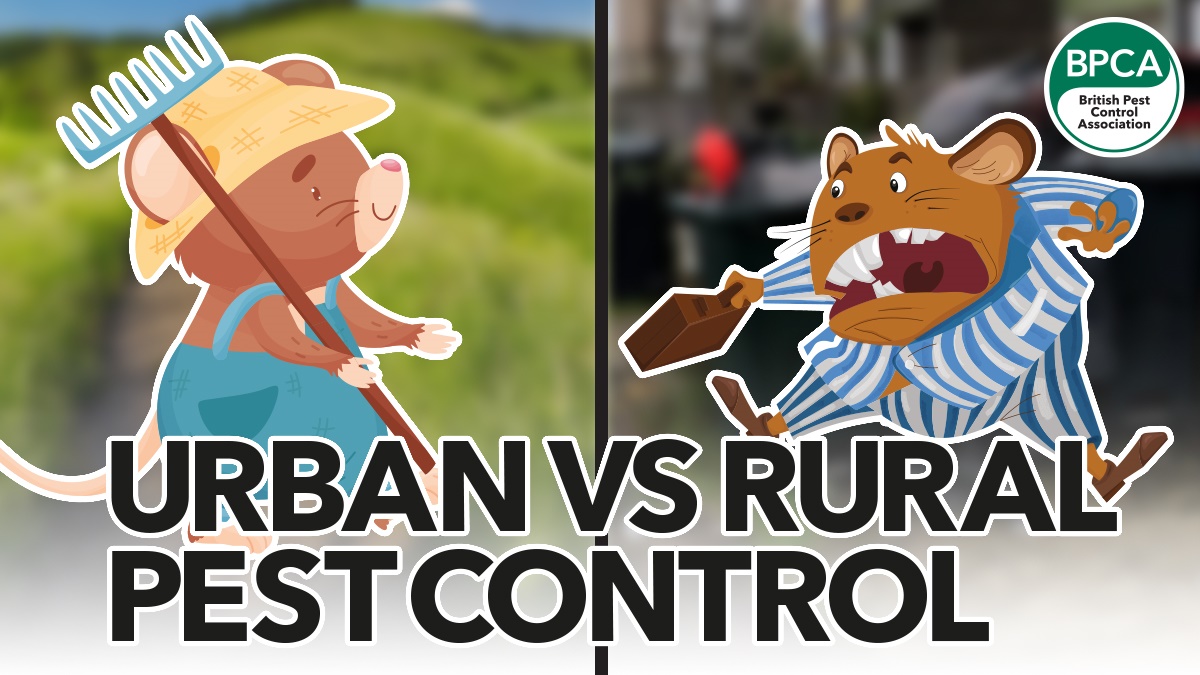PPC116 | Opinion
Louis Rico founded American Rat Control Inc. and has nearly 40 years of experience in rodent control. He discusses the challenges he faces in approaching different pest management environments.

Managing unwelcome guests in your home or workplace is a task nobody looks forward to but is necessary for our comfort and, sometimes, our survival. Whether it’s in a bustling cityscape or amidst the tranquillity of the countryside, strategies for pest control vary significantly.
The environments in urban and rural areas offer different challenges and advantages, shaping how we approach pest management in each setting.
The urban jungle: there’s a rat in me kitchen
City living, with its high density of buildings and people, creates a unique ecosystem for pests. From the subways below to the high-rises above, urban areas are bustling with not only humans but also with creatures that have adapted to thrive in these conditions.
I remember moving into my first apartment in the city, excited for the adventures that awaited. However, it didn’t take long for me to realise that I had roommates I hadn’t signed up for: cockroaches.
These resilient pests seemed to come from nowhere, making my kitchen their playground. This was before I became a pest professional myself, so after some research and a few failed DIY attempts, I reached out to a local pest management service.
The professionals identified the entry points and treated the area with products that were safe for my family. They also provided invaluable advice on preventing future infestations, such as sealing cracks and avoiding leaving food out.
But from then on, I was very aware of the possibility that I was sharing my living space with unwanted pests.
Countryside challenges: pest control in the great outdoors
In contrast, rural settings present a different set of challenges. With more green spaces and wildlife, the types of pests can vary greatly. From rodents seeking shelter in your barn to insects damaging crops, the battle against pests in the countryside often requires a more tailored and environmentally aware approach.
Now, living on a farm, we’re no strangers to the occasional mouse or rat. However, one year, we faced an invasion that tested our resolve. Rodents had made their way into our storage area, threatening our harvest and equipment. This situation required a multifaceted approach: we had to improve our storage practices, secure the buildings and set traps.
The experience taught us the importance of regular maintenance and vigilance in preventing pest problems. It’s a different beast altogether, controlling that rural rodent rampage compared to tackling rats in an apartment complex.
Knowing how to do both gives you a more complete skillset as a pest professional.
Integrated pes management: a modern approach
Regardless of the setting, an integrated pest management (IPM) approach has become a cornerstone of effective and sustainable pest management.
IPM involves understanding the biology and behaviour of pests, using a combination of practices to manage them, and minimising harm to people, property and the environment.
Urban IPM strategies
In urban areas, IPM in the USA emphasises the importance of sanitation, structural repairs and the educated use of pesticides. Public awareness campaigns and community involvement play crucial roles in reducing pest-related issues.
For example, a city might implement a programme to manage waste more effectively, reducing rodent populations by cutting off their food supply.
Rural IPM techniques
In rural settings, IPM strategies often focus on crop rotation, natural predators and selective pesticide application to manage pests without harming the surrounding ecosystem.
For instance, introducing certain types of birds that prey on crop-damaging insects can be an effective and natural way to control pest populations.
Technology’s role in pest control
Advances in technology have brought new tools to the forefront of pest management. Drones, for example, are being used in rural pest control to survey large agricultural areas quickly, identifying pest infestations before they become widespread problems.
In urban areas, smart traps communicate in real-time, allowing for immediate response to rodent activity.
Same same but different
Pest control in urban and rural settings requires different strategies, but the goal remains the same: to effectively manage pests in a way that minimises harm to humans and the environment.
By understanding the specific challenges of each setting, employing integrated pest management techniques, and utilising technology, we can navigate the complexities of pest control. So, whether you’re dealing with city cockroaches or countryside rodents, remember that solutions are available and, often, prevention is the best strategy.
Through vigilance and proper management, we can maintain a healthy balance between humans and nature.
Source: